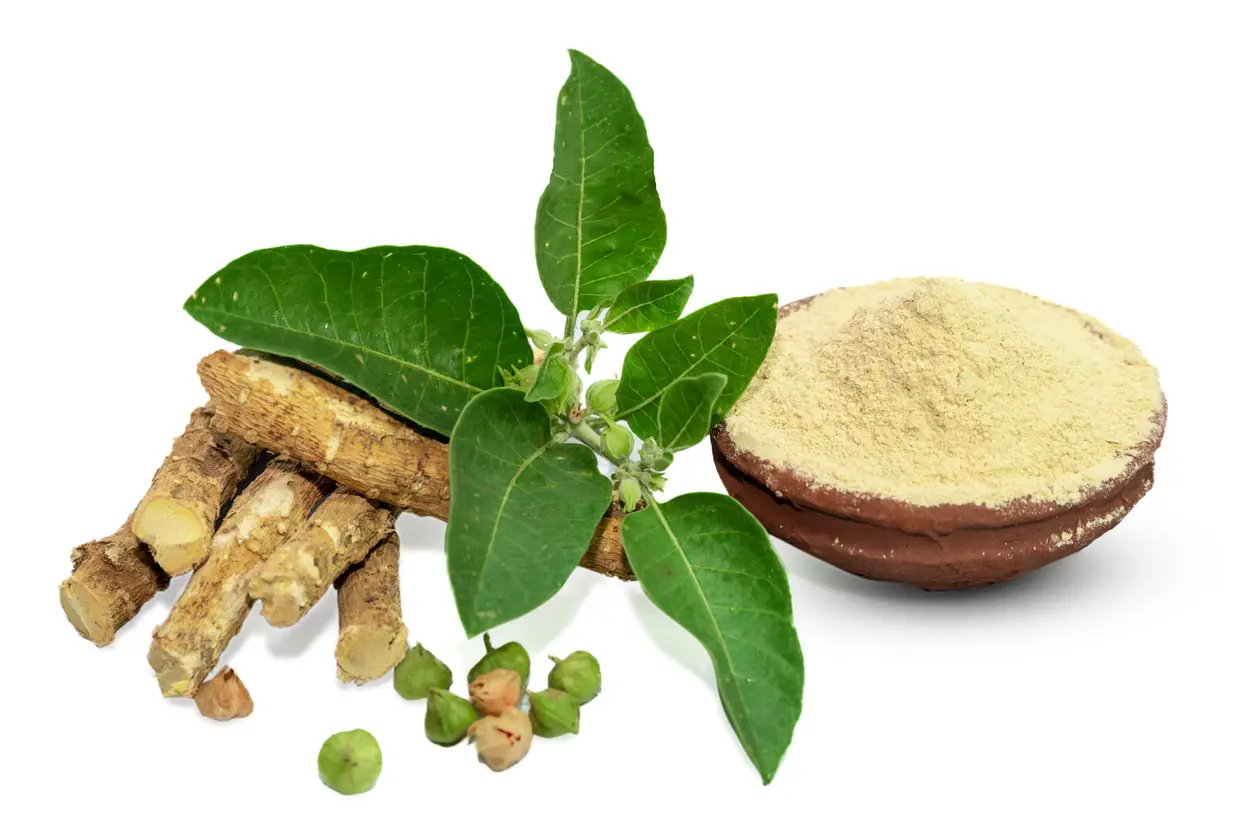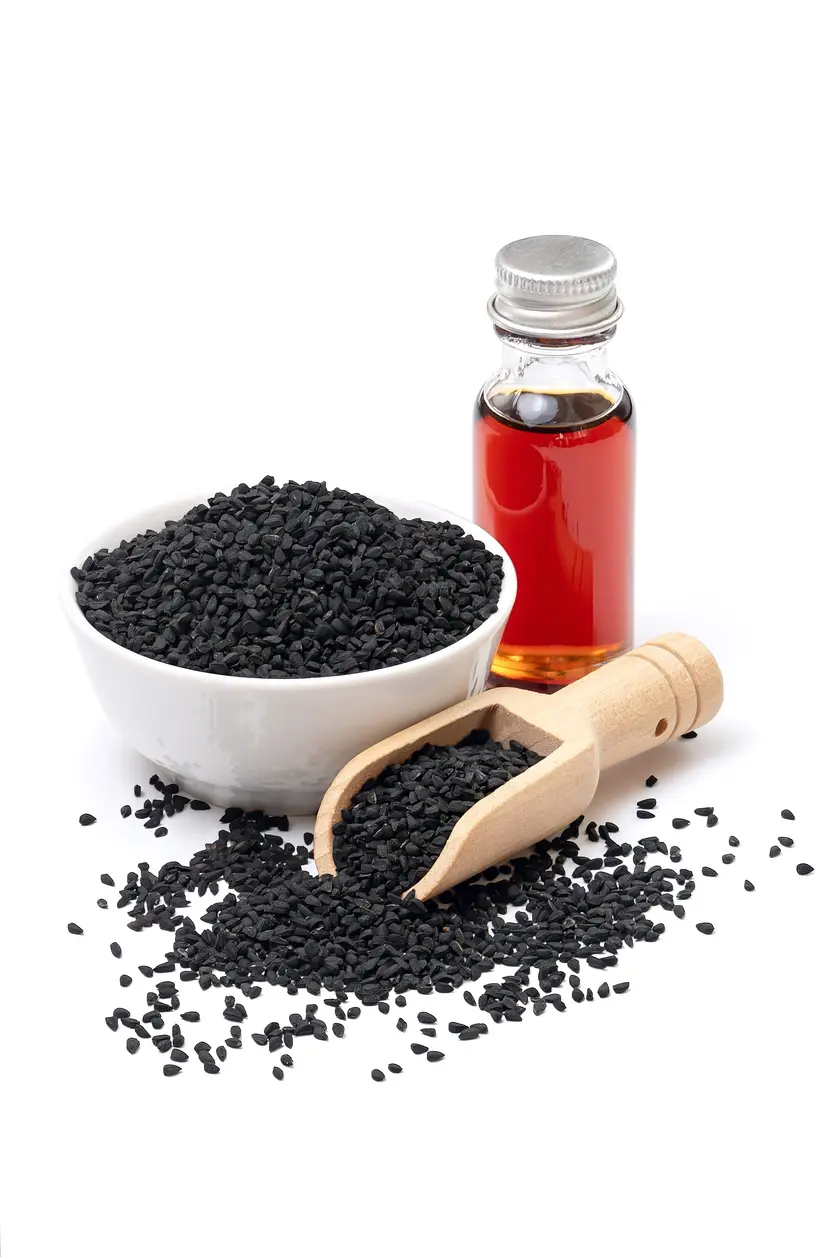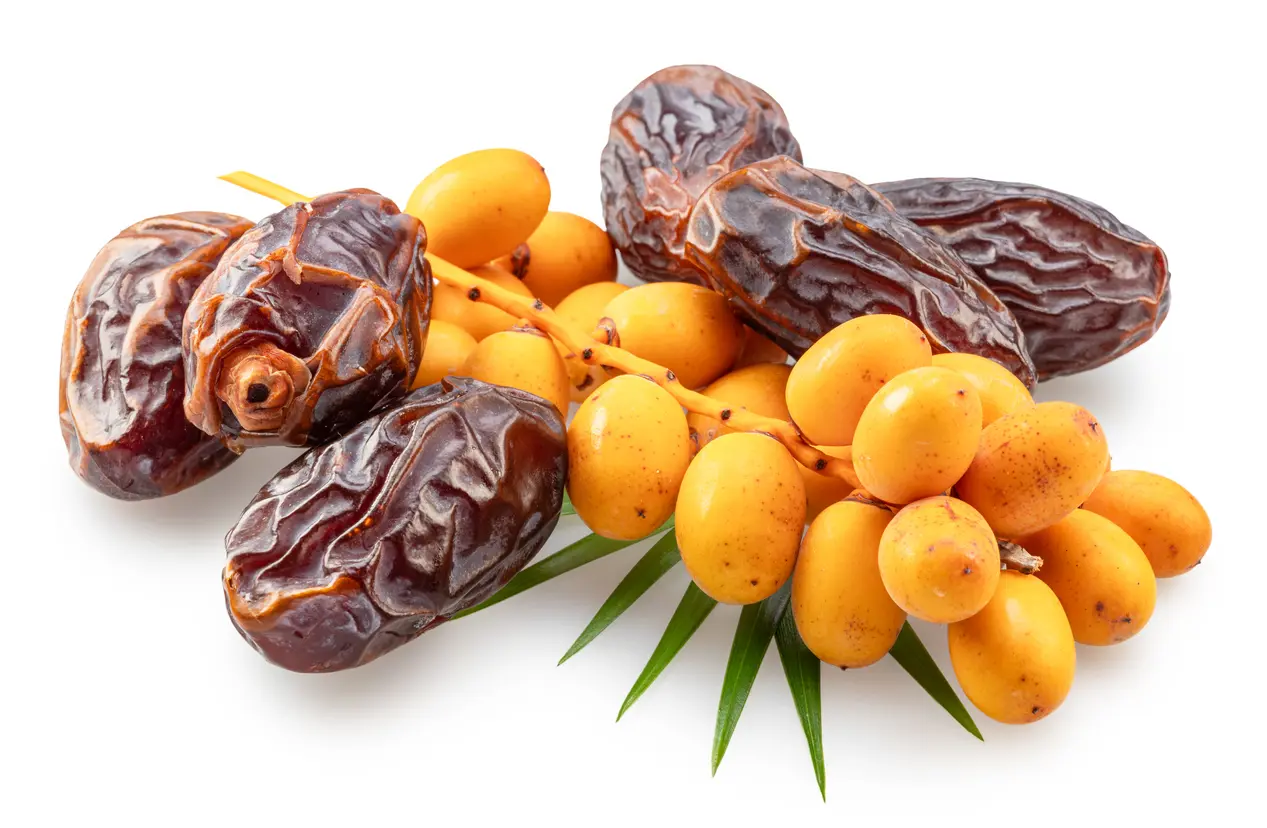Ashwagandha Benefits, Uses, and Potential Side Effects

Herbal medicine has been practiced for thousands of years and dates back to some of the world’s earliest civilizations in China, India, and Egypt. While the use of plants for therapeutic purposes may seem dated, modern science has confirmed the benefits of many traditional herbs. One of the most popular medicinal herbs still used today is ashwagandha. This powerful herb, also known as "withania somnifera", has attracted a lot of attention for its potential to reduce stress, increase energy, and boost brain health.
Despite its ancient roots, ashwagandha has stood the test of time, and research continues to support the positive effects it has on health and well-being. Multiple trials and reviews show promising results in reducing stress, improving sleep, enhancing athletic performance, and supporting male reproductive health. [1] Chandrasekhar K, Kapoor J, Anishetty S. A prospective, randomized double-blind, placebo-controlled study of safety and efficacy of a high-concentration full-spectrum extract of Ashwagandha root in reducing stress and anxiety in adults. Indian J Psychol Med. 2012;34(3):255-262. doi:10.4103/0253-7176.106022 , [2] Wankhede S, Langade D, Joshi K, et al. Examining the effect of Withania somnifera supplementation on muscle strength and recovery: a randomized controlled trial. J Int Soc Sports Nutr. 2015;12:43. doi:10.1186/s12970-015-0104-9 , [3] Sprengel M, et al. Withania somnifera (Ashwagandha) supplementation: a review of its mechanisms, health benefits, and role in sports performance In this article, we’ll explore the science-backed benefits and risks associated with ashwagandha, and highlight where this ancient herb fits in modern medicine.
What Is Ashwagandha?
Ashwagandha belongs to the Solanaceae family (which also includes tomatoes, peppers, and eggplants) and is native to India and Southeast Asia. [4] National Center for Biotechnology Information. Ashwagandha. StatPearls [Internet]. Treasure Island, FL: StatPearls Publishing; 2023. Accessed August 28, 2025. The active compounds in ashwagandha are called withanolides, and these phytonutrients are believed to be behind many of the shrub’s health effects. [5] Elgar K. Ashwagandha: A review of clinical use and efficacy. Nat Med J. 2021;13(2):45-58. Ashwagandha is typically found in powder form and can be taken as a capsule or mixed into a beverage or food.
Key Benefits of Ashwagandha
Reduces Stress
Ashwagandha is best known for its ability to mitigate both stress and anxiety. Studies have shown ashwagandha supplementation may reduce anxiety in people with anxiety disorders. [6] Fuladi S, Jafari A, Mehrabi F, et al. Assessment of Withania somnifera root extract efficacy in patients with generalized anxiety disorder: a randomized double-blind placebo-controlled trial. Curr Clin Pharmacol. 2020;15(3):165-172. doi:10.2174/1574884715666200413120413 Ashwagandha has also been found to create an overall lower perception of stress, compared to placebos. [7] Mikulska P, Malinowska M, Ignacyk M, et al. Ashwagandha (Withania somnifera)—current research on the health-promoting activities: a narrative review. Pharmaceutics. 2023;15(4):1057. doi:10.3390/pharmaceutics15041057
- How It Works: This ancient herb helps keep stress hormones like cortisol and DHEA in check by decreasing activity of the body’s stress response system, otherwise known as the hypothalamic–pituitary–adrenal (HPA) axis. [7] Mikulska P, Malinowska M, Ignacyk M, et al. Ashwagandha (Withania somnifera)—current research on the health-promoting activities: a narrative review. Pharmaceutics. 2023;15(4):1057. doi:10.3390/pharmaceutics15041057
Improves Sleep
In addition to reducing stress, ashwagandha can also help promote better sleep. A large meta-analysis found that ashwagandha extract improves overall sleep in people with insomnia. [8] Cheah KL, Norhayati MN, Yaacob LH, Abdul Rahman R. Effect of Ashwagandha (Withania somnifera) extract on sleep: a systematic review and meta-analysis. PLoS One. 2021;16(9):e0257843. doi:10.1371/journal.pone.0257843 Another review determined that taking this herb helped people fall asleep faster and stay asleep longer. [9] Minakshi T Bobade Ashwagandha in treatment of insomnia : A Review
- How It Works: Although the specific mechanism hasn’t been established, it’s believed that ashwagandha improves sleep by increasing levels of GABA (a neurotransmitter associated with sleep and relaxation). [7] Mikulska P, Malinowska M, Ignacyk M, et al. Ashwagandha (Withania somnifera)—current research on the health-promoting activities: a narrative review. Pharmaceutics. 2023;15(4):1057. doi:10.3390/pharmaceutics15041057
Boosts Brain Function
Ashwagandha may help sharpen memory, focus, and reaction time. One study found that people taking ashwagandha scored better on tests assessing visual memory, reaction time, psychomotor speed, and overall executive functioning. [10] Verma N, Gupta SK, Tiwari S, Mishra S, Mishra S. Efficacy and safety of Ashwagandha root extract in insomnia and anxiety: a double-blind, randomized, placebo-controlled study. J Ayurveda Integr Med. 2021;12(3):493-498. doi:10.1016/j.jaim.2020.11.010 Additionally, ashwagandha has been shown to support brain health by protecting against neurodegenerative diseases. [7] Mikulska P, Malinowska M, Ignacyk M, et al. Ashwagandha (Withania somnifera)—current research on the health-promoting activities: a narrative review. Pharmaceutics. 2023;15(4):1057. doi:10.3390/pharmaceutics15041057
- How It Works: Ashwagandha extract has been shown to neutralize the toxic effects of β-amyloid (a protein associated with Alzheimer’s disease) and also regulate the gene expression of certain neuroinflammatory molecules. [7] Mikulska P, Malinowska M, Ignacyk M, et al. Ashwagandha (Withania somnifera)—current research on the health-promoting activities: a narrative review. Pharmaceutics. 2023;15(4):1057. doi:10.3390/pharmaceutics15041057
Supports Muscle Building
This tiny herb can have a big impact on your body composition and athletic performance. One study evaluating exercise in healthy men found that patients who took ashwagandha had a significant increase in muscle strength and muscle mass in the arms and chest. These patients also had a significant decrease in body fat. [11] Wankhede S, Langade D, Joshi K, Sinha SR, Bhattacharyya S. Examining the effect of Withania somnifera supplementation on muscle strength and recovery: a randomized controlled trial. J Int Soc Sports Nutr. 2015;12:1-11. doi:10.1186/s12970-015-0104-9
- How It Works: Ashwagandha can reduce the level of exercise-induced muscle myocyte damage, which allows for faster recovery and improves exercise efficiency. [7] Mikulska P, Malinowska M, Ignacyk M, et al. Ashwagandha (Withania somnifera)—current research on the health-promoting activities: a narrative review. Pharmaceutics. 2023;15(4):1057. doi:10.3390/pharmaceutics15041057
Hormonal and Reproductive Health
Ashwagandha supplementation can help optimize hormonal health, as it’s been associated with increased testosterone levels in men. [11] Wankhede S, Langade D, Joshi K, Sinha SR, Bhattacharyya S. Examining the effect of Withania somnifera supplementation on muscle strength and recovery: a randomized controlled trial. J Int Soc Sports Nutr. 2015;12:1-11. doi:10.1186/s12970-015-0104-9 Furthermore, men with a history of infertility had improved sperm count, sperm morphology, and sperm motility after taking ashwagandha for just 3 months. [12] Mahdi AA, Shukla KK, Ahmad MK, et al. Withania somnifera improves semen quality in stress-related male infertility. Evid Based Complement Alternat Med. 2009;6(4):493-498. doi:10.1093/ecam/nep138
Anti-Inflammatory and Antioxidant Effects
Ashwagandha has been clinically evaluated for its anti-inflammatory effects. Taken in powder form, it has been shown to stimulate the immune system by increasing the number of white blood cells and circulating antibodies. It has also been found to activate natural killer cells in the body. [13] Davis L, Kuttan G. Immunomodulatory activity of Withania somnifera. J Ethnopharmacol. 2000;71(1-2):193-200. doi:10.1016/S0378-8741(99)00206-8
- How It Works: Ashwagandha reduces inflammation by inhibiting inflammatory markers such as cytokines, nitric oxide, and reactive oxygen species. [7] Mikulska P, Malinowska M, Ignacyk M, et al. Ashwagandha (Withania somnifera)—current research on the health-promoting activities: a narrative review. Pharmaceutics. 2023;15(4):1057. doi:10.3390/pharmaceutics15041057
How to Use Ashwagandha
Most research supports an effective dose is 300–600 mg/day of standardized root extract, often split into two doses. This can be taken in pill form or as a powder added to smoothies or bowls.[5] Elgar K. Ashwagandha: A review of clinical use and efficacy. Nat Med J. 2021;13(2):45-58. , [7] Mikulska P, Malinowska M, Ignacyk M, et al. Ashwagandha (Withania somnifera)—current research on the health-promoting activities: a narrative review. Pharmaceutics. 2023;15(4):1057. doi:10.3390/pharmaceutics15041057
For best results:
- Look for third-party tested supplements.
- Stick to recommended dosages.
- Plan to take it for 8-12 weeks.
Side Effects and Safety Considerations
While there are many benefits associated with this herb, it’s important to be aware of the risks:
- Possible Side Effects
- Drowsiness
- Upset stomach
- Diarrhea
- Vomiting
- Liver injury
Who Shouldn’t Take Ashwagandha? [14] Davis L, Kuttan G. Immunomodulatory activity of Withania somnifera. J Ethnopharmacol. 2000;71(1-2):193-200. doi:10.1016/S0378-8741(99)00206-8
- Ashwagandha should not be taken during pregnancy or while breastfeeding. Additionally, it is not recommended for people who have autoimmune conditions or thyroid disorders.
- Ashwagandha may interact with certain medications, like blood pressure drugs, immunosuppressants, sedatives, anti-seizure medications and thyroid hormone medications.
- As always, talk to your healthcare provider before starting new supplements.
Conclusion
- Ashwagandha is an adaptogen that may help support the body in multiple ways. While studies have found this herb can reduce stress, improve sleep, support brain health, and optimize hormone levels, there’s still more to learn.
- Ashwaghanda is not right for everyone, and can interact with certain prescription medications. If you’re considering adding this ancient herb to your routine, talk to your doctor to see if it’s right for you.
Was this article helpful?
-
A prospective, randomized double-blind, placebo-controlled study of safety and efficacy of a high-concentration full-spectrum extract of Ashwagandha root in reducing stress and anxiety in adults. Indian J Psychol Med. 2012;34(3):255-262. doi:10.4103/0253-7176.106022; Chandrasekhar K, Kapoor J, Anishetty S. ;
https://pubmed.ncbi.nlm.nih.gov/23439798/ -
Examining the effect of Withania somnifera supplementation on muscle strength and recovery: a randomized controlled trial. J Int Soc Sports Nutr. 2015;12:43. doi:10.1186/s12970-015-0104-9; Wankhede S, Langade D, Joshi K, et al. ;
https://pubmed.ncbi.nlm.nih.gov/26609282/ -
Withania somnifera (Ashwagandha) supplementation: a review of its mechanisms, health benefits, and role in sports performance; Sprengel M, et al. ;
https://nutritionandmetabolism.biomedcentral.com/articles/10.1186/s12986-025-00902-7 -
National Center for Biotechnology Information. Ashwagandha. StatPearls [Internet]. Treasure Island, FL: StatPearls Publishing; 2023. Accessed August 28, 2025.;
https://www.ncbi.nlm.nih.gov/books/NBK548536/?utm_source=chatgpt.com -
Ashwagandha: A review of clinical use and efficacy. Nat Med J. 2021;13(2):45-58.; Elgar K. ;
https://www.nmi.health/wp-content/uploads/2022/12/NMJ_Ashwagandha__A_Review_of_Clinical_Use_and_Efficacy.pdf -
Assessment of Withania somnifera root extract efficacy in patients with generalized anxiety disorder: a randomized double-blind placebo-controlled trial. Curr Clin Pharmacol. 2020;15(3):165-172. doi:10.2174/1574884715666200413120413; Fuladi S, Jafari A, Mehrabi F, et al. ;
https://pubmed.ncbi.nlm.nih.gov/32282308/ -
Ashwagandha (Withania somnifera)—current research on the health-promoting activities: a narrative review. Pharmaceutics. 2023;15(4):1057. doi:10.3390/pharmaceutics15041057; Mikulska P, Malinowska M, Ignacyk M, et al.;
https://pubmed.ncbi.nlm.nih.gov/37111543/ -
Effect of Ashwagandha (Withania somnifera) extract on sleep: a systematic review and meta-analysis. PLoS One. 2021;16(9):e0257843. doi:10.1371/journal.pone.0257843; Cheah KL, Norhayati MN, Yaacob LH, Abdul Rahman R. ;
https://journals.plos.org/plosone/article?id=10.1371/journal.pone.0257843 -
Ashwagandha in treatment of insomnia : A Review; Minakshi T Bobade;
https://www.researchgate.net/publication/350764726_Ashwagandha_in_treatment_of_insomnia_A_Review -
Efficacy and safety of Ashwagandha root extract in insomnia and anxiety: a double-blind, randomized, placebo-controlled study. J Ayurveda Integr Med. 2021;12(3):493-498. doi:10.1016/j.jaim.2020.11.010; Verma N, Gupta SK, Tiwari S, Mishra S, Mishra S. ;
https://pmc.ncbi.nlm.nih.gov/articles/PMC6827862/ -
Examining the effect of Withania somnifera supplementation on muscle strength and recovery: a randomized controlled trial. J Int Soc Sports Nutr. 2015;12:1-11. doi:10.1186/s12970-015-0104-9; Wankhede S, Langade D, Joshi K, Sinha SR, Bhattacharyya S. ;
https://pubmed.ncbi.nlm.nih.gov/26609282/ -
Withania somnifera improves semen quality in stress-related male infertility. Evid Based Complement Alternat Med. 2009;6(4):493-498. doi:10.1093/ecam/nep138; Mahdi AA, Shukla KK, Ahmad MK, et al. ;
https://pubmed.ncbi.nlm.nih.gov/19789214/ -
Immunomodulatory activity of Withania somnifera. J Ethnopharmacol. 2000;71(1-2):193-200. doi:10.1016/S0378-8741(99)00206-8; Davis L, Kuttan G. ;
https://pubmed.ncbi.nlm.nih.gov/10904163/ -
Immunomodulatory activity of Withania somnifera. J Ethnopharmacol. 2000;71(1-2):193-200. doi:10.1016/S0378-8741(99)00206-8; Davis L, Kuttan G. ;
https://pubmed.ncbi.nlm.nih.gov/10904163/ -
National Center for Complementary and Integrative Health. Ashwagandha: In Depth. National Institutes of Health. Updated September 2022. Accessed August 28, 2025.;
https://www.nccih.nih.gov/health/ashwagandha?utm_source=chatgpt.com









